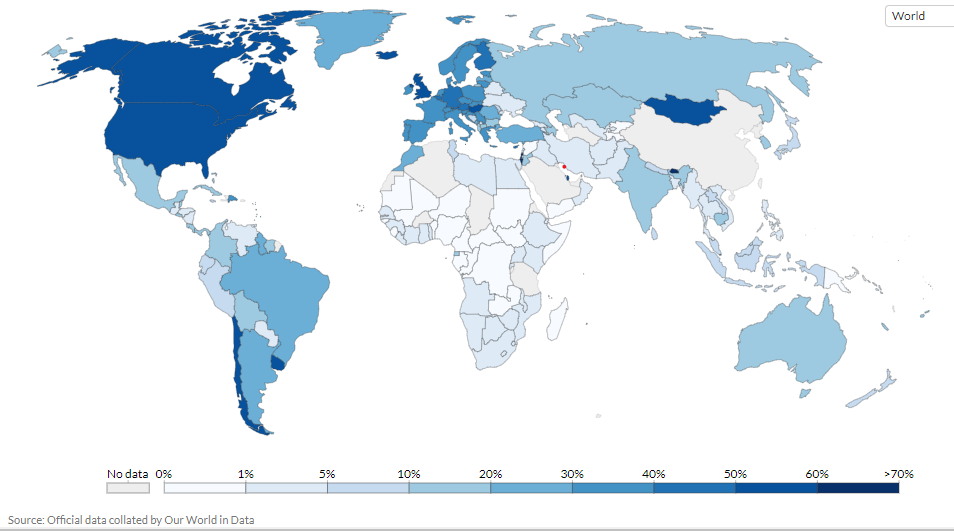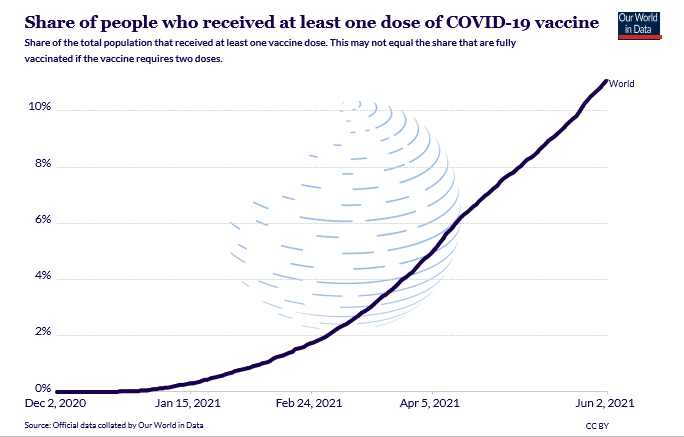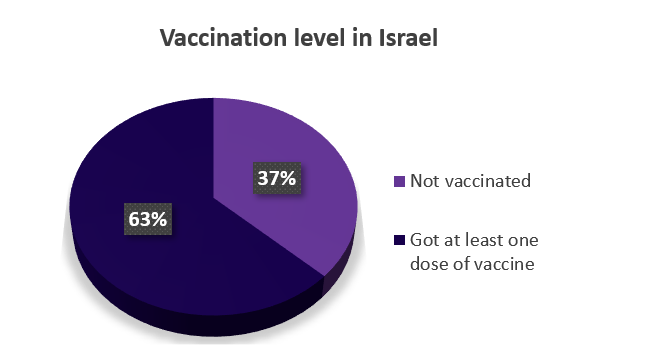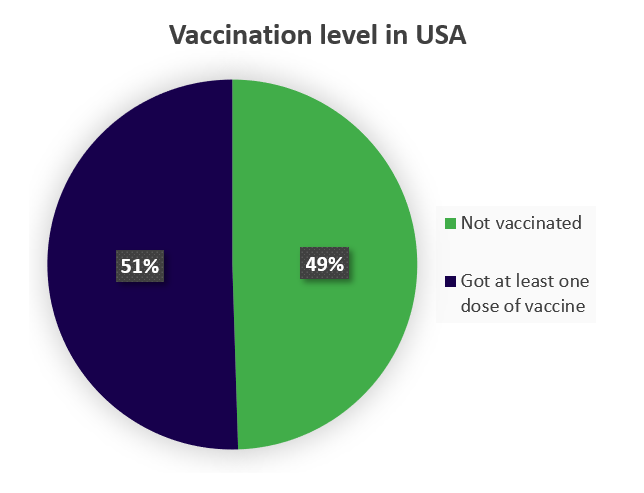COVID-19 outbreak caused one of the most severe crisis in the history of mankind and entire world still tries to cope with it. As of now, number of infected individuals exceeds 158 million, while number of deaths caused by the virus is more than 3,2 million. The pandemic changed entire world and alongside, severely affected all the existing industries. Its results were reflected in global economic recession, including bankruptcy of small and medium businesses, increase of unemployment rate, crisis in tourism sector, record fall on stock exchange, etc.
Economic recession during the pandemic
Global economy was severely hit which was caused by regulations set in forth for prevention of the virus outbreak. As soon as the pandemic started, it drastically changed lifestyle, occupation and in general, our everyday life. Soon enough, the majority of countries announced strict lockdown as the most effective tool against the virus and social distancing as the best way to protect each other. These regulations made huge impact on the global economy and left millions of people jobless. According to the 2020 report issued by World Health Organization, 114 million individuals were left without job all over the world this year. In total, 8.8 percent of global working hours were lost throughout the year which is equivalent to 255 million full-time work. The given rate is approximately 4 times higher compared to working hours lost as a result of global financial crisis in 2009. Loss of the resource on labor market was naturally caused by bankruptcy of companies or compulsory slim down of personnel. In 2020, Gross Domestic Product globally decreased by 3.7 trillion USD, which equals 4.4. percent decrease. Process of economic improvement is particularly hindered by regulations related to social distancing which were set in forth due to airborne transmission of the virus.
Immunization as the way of survival
Work on Covid-19 vaccines started in different labs as early as in 2020 and as for today, vaccination process is actively implemented in the majority of countries. In order to restore social gatherings and return to office space, it is clearly most important to minimize health-related risks. At this point, this can be achieved only with help of herd immunity, which means that more than half of country/world population needs to be resistant to the virus. Only mass vaccination will make it possible to achieve this goal. However, it is a fact that generation of herd immunity requires significant period of time and medical resources. In addition to this, there is lack of citizens’ readiness to get vaccinated which sometimes prolongs the said process even more. All these, added up together results in delayed immunization process and economic recession goes on indefinitely.

Potential effect of mass immunization
More than 2,02 billion doses of vaccine are used in the world and more than 443 million people are fully vaccinated. More than 11 percent of world population is vaccinated at least once and 5,7 percent of population is fully vaccinated. Even though it takes certain amount of time after mass vaccination to generate herd immunity, but looking at the examples of some of the countries, we can already speak about first results and positive tendencies coming from vaccination.

Israel holds the leading position in population immunization process where more than 63 percent of citizens have at least one dose of vaccine and more than 56 percent of citizens are fully vaccinated. This enabled the country to generate herd immunity and restore activities in public spaces or offices which will definitely make its impact on the economy. Vaccination level is so high in Israel, that it is no longer required to wear a mask outdoors and regulations are significantly lighter. In addition, schools are now open and fully vaccinated people can freely visit restaurants, attend cultural and sports events, concerts in large halls and celebrate religious holidays in mass gathering spaces. As a result of relaxed regulations resulted from vaccination, service field has already started working in the country and companies operating in this sector already make their first steps to cope with financial crisis.

51 percent of population in United States of America got at least one dose of vaccine and more than 41.5% is fully vaccinated. Part of strict regulations are abolished, including: fully vaccinated people are allowed not to wear a mask indoors and outdoors unless it is required by the law of the specific state. In addition, it is no longer compulsory to do COVID test or stay in self-isolation for domestic or international travels. This helps to revive the tourism and allow companies and their employees operating in this sector to go back to economic activity.

With help of high level of vaccination, these countries manage to open economy, restore everyday activities and enable business sector to work fully – this supports generation of new jobs and is the first step to restoring country’s economy.
From tough challenges to new opportunities
We all know the world before the pandemic, but we can only assume what it will be like after the pandemic is over. Based on past experiences of overcoming crisis situations, such was big depression in 30ies, global economic crisis after World War II, economic recession after the collapse of Soviet Union or world financial crisis in 2009-2010, together with world leading analysists/experts we can assume that the end of this pandemic will be followed even more changes:
Altered consumer behavior – the pandemic has already drastically altered consumer behavior and this change will become even more distinct in long-term perspective. When coping with instability, people had priorities, requirements and values shifted. Consumers’ expectations towards companies will change, they will want new way of receiving service and purchasing products. Respectively, companies will have to remodel their working methods and presumably, role of e-commerce, remote services and automatization of processes will grow even bigger in future.
Labor market – remote format of work provides new challenges and opportunities for employers and employees. Nowadays, more and more employees have a desire to work remotely or choose hybrid format of work implying shift of remote and office formats. It is presumable, that employers will consider switching their employees to remote format in the post-pandemic era which will enable them to cut costs.
Business sector – many industries face inevitable changes and in order to cope with the pandemic, companies had to beat off rather painful hits. Such change of the environment pushed businesses to revise their strategy. Traditional methods of doing business turned out to be ineffective in many industries, while business companies showed insufficient flexibility and adaptation ability. Companies like that will have to develop renewed business models, remodel their strategies and adjust to new requirements of consumers which need to be appropriate to the post-pandemic era as well.
Digital era – digitalization process of business sector started even before the pandemic, but COVID-19 outbreak drastically accelerated this process. Digital transformation is inevitable in today’s reality and its need will be even more obvious after the pandemic is over. It was digital technologies that made it possible to remotely work, study and in general, communicate in a new way during the pandemic. Intense investment in the sector of digital technologies will continue after the pandemic too and new services or completely new industries will inevitable emerge.
The Coronavirus Pandemic made the mankind face a variety of challenges and opportunities at the same time. Fighting against the virus is a complex process where you can only gain advantage through joined forces. In the process of coping with the pandemic, economic rates may get equal or even exceed pre-COVID results, but considering its tremendous size, the pandemic thoroughly changed external factors and people’s mindset as well. Even though no one knows for sure that the new world will look like, but it is vitally important for all of us to realize that mass vaccination is not a simple solution to the problem and key to improve global/local economic condition. Vaccination just gives us a chance to live with fewer regulations, return to social space and restore economy with our bare hands. To say it in other words – mass vaccination will help us pass the road together from immunization of population to regeneration of economy.






